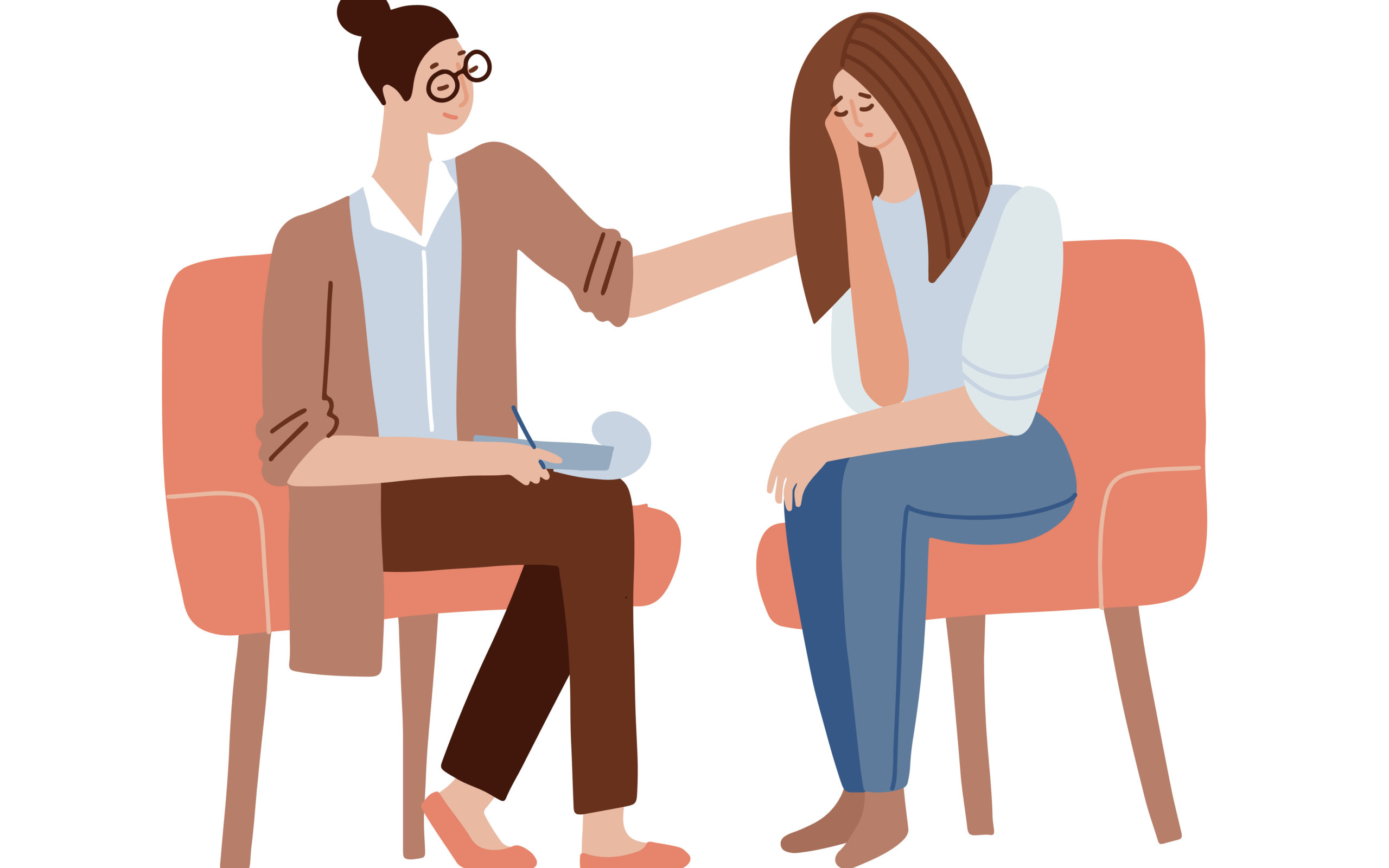Top Reasons to Consult the Best Psychologist in Delhi for Your Emotional Health and wellness
Top Reasons to Consult the Best Psychologist in Delhi for Your Emotional Health and wellness
Blog Article
Psych Therapy: A Comprehensive Overview to Techniques and Outcomes
:max_bytes(150000):strip_icc()/GettyImages-497325859-56a7975c3df78cf772976afa.jpg)
Cognitive-Behavioral Therapy
Cognitive-Behavioral Treatment (CBT) is a commonly utilized psychotherapeutic technique that concentrates on identifying and customizing useless thinking and habits patterns. Created in the 1960s by Aaron T. Beck, CBT combines behavior and cognitive concepts to address different psychological wellness issues, including anxiety, anxiousness, and stress-related disorders.
CBT is defined by its organized, ambitious nature. Therapy usually includes a collective procedure in between the therapist and client, where certain issues are determined, and functional methods are established to resolve them. Methods such as cognitive restructuring, direct exposure therapy, and skill-building workouts are frequently employed. Cognitive restructuring involves tough and changing adverse idea patterns, while exposure therapy aims to lower concern and anxiousness through progressive direct exposure to been afraid items or situations.
Evidence-based research sustains the efficacy of CBT for a vast array of mental conditions - Best Psychologist in Delhi. Its focus on skill acquisition and self-help techniques equips customers to proceed progress independently after therapy concludes. The flexibility and performance of CBT have made it a keystone in contemporary psychotherapeutic technique
Psychodynamic Techniques
Rooted in the early concepts of Sigmund Freud, psychodynamic methods concentrate on exploring the subconscious mind and its influence on behavior and emotions. These approaches aim to reveal covert ideas and feelings that may be driving maladaptive actions and psychological distress. Central to this technique is the concept of inner dispute, typically stemming from unsettled previous experiences, particularly those from childhood years.
Therapists using psychodynamic strategies employ a number of key techniques, consisting of free association, where individuals are urged to speak easily to disclose subconscious material, and desire analysis, which translates the hidden content of dreams. Furthermore, the exploration of transference and countertransference characteristics within the therapeutic partnership is vital. These interactions can supply understandings into the patient's interior world and relational patterns.
Psychodynamic therapy is normally longer-term contrasted to various other methods, offering a detailed and deep understanding of the individual's subconscious. Study shows that it can be specifically effective for complex mental wellness concerns, such as individuality problems and persistent clinical depression. By cultivating self-awareness and psychological understanding, psychodynamic therapy seeks to bring unconscious material to awareness, making it possible for people to attain purposeful and enduring change in their lives.
Humanistic Techniques
Structure on the structures laid by psychodynamic techniques, humanistic methods provide a distinct perspective concentrated on private prospective and self-actualization. Coming from the mid-20th century, these techniques focus on the intrinsic goodness and development capacity of individuals, highlighting an all natural view of human experience. Key figures such More Help as Carl Rogers and Abraham Maslow have actually substantially influenced this therapeutic strategy, which includes methods like client-centered treatment and Gestalt therapy.
Client-centered treatment, established by Rogers, plays a pivotal function in humanistic techniques. The therapist's duty is more of a facilitator than an authority, motivating clients to harness their inner sources for healing.
Gestalt therapy, an additional important humanistic strategy, emphasizes present minute awareness and the combination of body and mind. By focusing on the "right here and currently," clients acquire better insight into their present emotions and behaviors. Techniques such as role-playing and directed visualization are often utilized to aid clients acquire a much deeper understanding of themselves, inevitably leading to improved self-awareness and gratification.
Integrative Treatments
Integrative treatments stand for a synthesis of various restorative strategies customized to fulfill the unique requirements of each customer. This technique recognizes the intricacy of human psychology and the complex nature of psychological wellness concerns. By combining elements from different schools of psychotherapy-- such as cognitive-behavioral therapy (CBT), psychodynamic therapy, and humanistic techniques-- integrative treatments use an even more all natural and adaptable therapy standard.
Experts of integrative treatment analyze each customer's details demands, signs and symptoms, and individual background to design a tailored therapy plan. This personalized technique boosts the possibility for restorative success by attending to the source of mental distress and promoting general well-being. Methods might consist of mindfulness workouts, cognitive restructuring, and psychological processing, each picked to target various facets of the client's issues.
Additionally, integrative therapies emphasize the healing partnership, seeing the client-therapist bond as an important element of reliable therapy. This relationship cultivates an encouraging setting where customers really feel secure to discover and address their problems. The flexibility of integrative therapies makes them suitable for a broad variety of problems, including anxiousness, depression, injury, and interpersonal problems, thereby boosting their applicability and effectiveness in varied clinical settings.

Determining Therapy End Results
Assessing the performance of psychotherapy is crucial for both clients and medical professionals to guarantee that the therapy is yielding the preferred end results. To accomplish this, different approaches and devices are used to measure treatment outcomes systematically. Standard assessment tools, such as the Beck Anxiety Supply (BDI) and the Generalized Stress And Anxiety Problem 7 (GAD-7), provide quantitative information on symptom seriousness and adjustments over time.
In addition to standard devices, qualitative methods like client self-reports and scientific meetings supply useful insights right into the individual experiences and regarded progress of clients. Routinely set up assessments, normally at the start, omphalos, and end of therapy, assistance in tracking the trajectory of enhancement or recognizing locations requiring change.
Outcome measurement is not limited to symptom reduction; it likewise includes practical enhancements in day-to-day life, such as better interpersonal connections, boosted job efficiency, and improved general wellness. Modern improvements in digital health and wellness have introduced mobile apps and online systems that help with real-time monitoring and feedback, even more refining the analysis procedure.
Eventually, a detailed method to determining therapy end results makes certain that healing treatments click for source work, efficient, and customized to satisfy the private needs of customers, therefore enhancing the overall therapeutic experience.
Verdict
Humanistic strategies focus on individual growth and self-actualization, while integrative therapies incorporate multiple techniques for customized therapy plans. Examining treatment outcomes with standard assessments and qualitative methods guarantees a thorough understanding of effectiveness, ultimately assisting customers toward withstanding psychological health enhancements.
From the organized technique of Cognitive-Behavioral Treatment (CBT) to the deep expedition of the unconscious in psychodynamic therapy, each technique brings special advantages. Its focus on ability procurement and self-help techniques empowers clients to continue development separately after treatment wraps up (Best Psychologist in Delhi). Trick numbers such as Carl Rogers and Abraham Maslow have actually significantly influenced this therapeutic method, which includes techniques like client-centered therapy and Gestalt therapy

Report this page